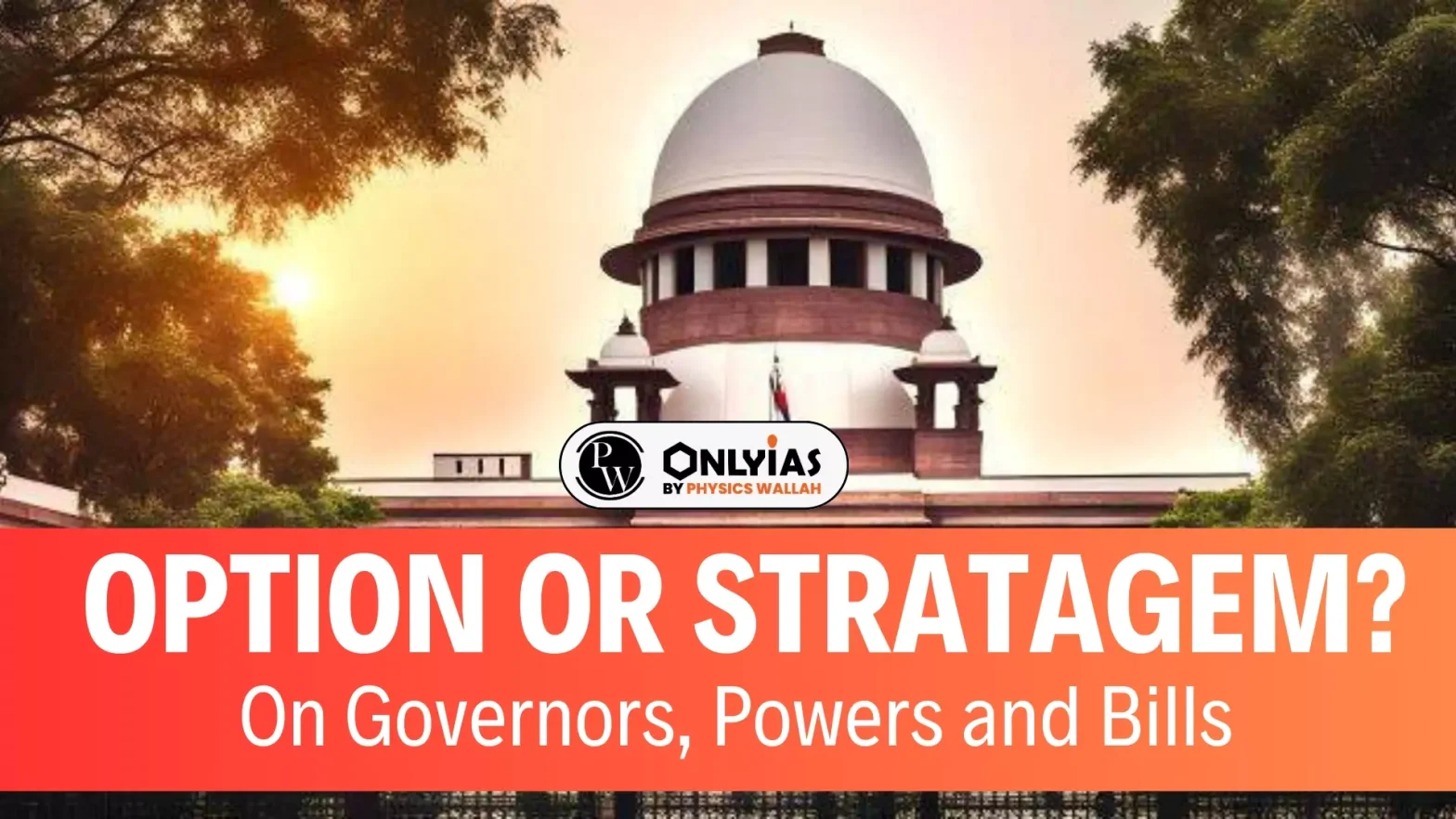The manner in which some Governors have been dealing with legislation passed by the State legislatures is a travesty of the Constitution.
| Relevancy for Prelims: Governor, Governor’s sending the Bills to the President, writ petition, etc.
Relevancy for Mains: Office of the Governor, Controversies surrounding Governors’ role, etc. |
Option or Stratagem?
- After the Supreme Court of India intervened in the case of Punjab and raised questions about the action or inaction of Governors in Tamil Nadu and Telangana, it was believed that incumbents in Raj Bhavans would end their deliberate inaction on Bills passed by the Assemblies.
- However, it appears that on finding that their supposed discretion to sit indefinitely on the Bills or withhold assent to them has been significantly curtailed, Governors have taken to the stratagem of sending Bills they disapprove of to the President for consideration.
- When the President refuses assent, based on the advice of the Union government, there is no recourse left for the State legislatures.
Enroll now for UPSC Online Course
- This has given rise to the question whether the provision for reservation of some Bills for the President’s consideration is being misused for subverting federalism.
- In other words, the Centre is given a contrived veto over State laws – something not envisaged in the Constitution.
- This is precisely the question that Kerala has raised in its writ petition before the Court, challenging the Governor’s action in sending the Bills to the President and the latter’s refusal of assent.
- It is now quite an appropriate time for the Court to adjudicate the question and place limitations on the use of the option given to Governors.
- It is worth recalling that in the Punjab case, the Court ruled that Governors do not have a veto over Bills, and that whenever they withheld assent, they were bound to return the Bills to Assembly; and if the Assembly adopted the Bills, with or without amendments, they were bound to grant assent.
- In the case of Telangana, the Court observed that Governors were expected to act on Bills “as soon as possible”, underscoring that the phrase had significant constitutional content and that constitutional functionaries would have to bear this in mind.
- It is quite surprising that the Governors of West Bengal and Kerala have learnt nothing from these judgments and observations.
- Seven Bills from Kerala that may not normally require the President’s assent were sent up to Rashtrapati Bhavan; four were refused assent without any reason being assigned.
- The inaction on these Bills range from 23 to 10 months.
- West Bengal has also challenged the inaction on some Bills, a few of which may have been referred to the President.
- The issue transcends the political considerations that may have inspired the action or inaction on the part of the Governor.
- At its core, it concerns the question whether the Constitution permits such indirect central intervention in the legislative domain of the States.
Check Out UPSC Modules From PW Store
Conclusion
The misuse of presidential referral by Governors undermines federalism. The Supreme Court must address this issue to uphold the Constitution’s balance between State and central powers.
![]() 31 Jul 2024
31 Jul 2024
